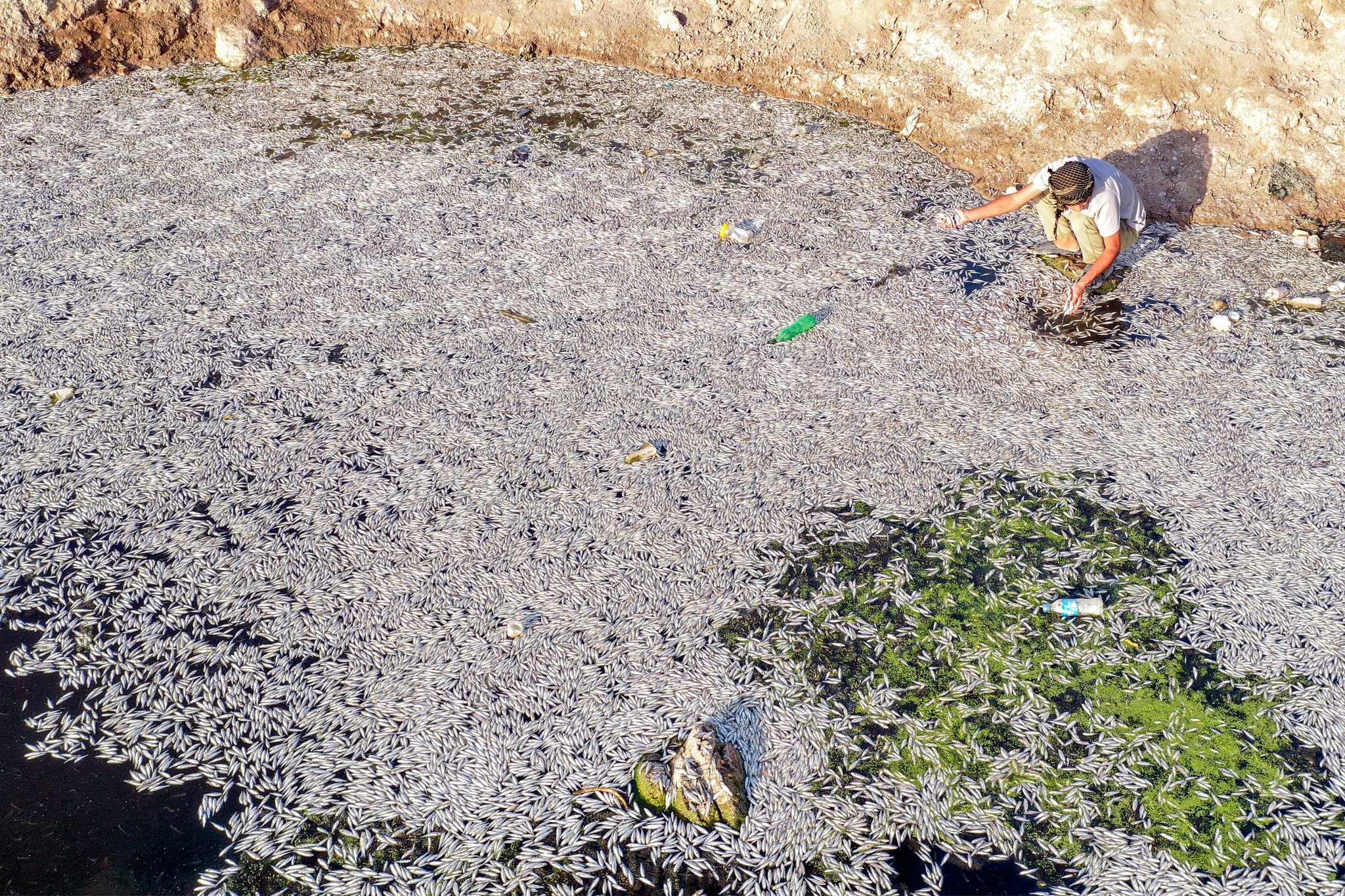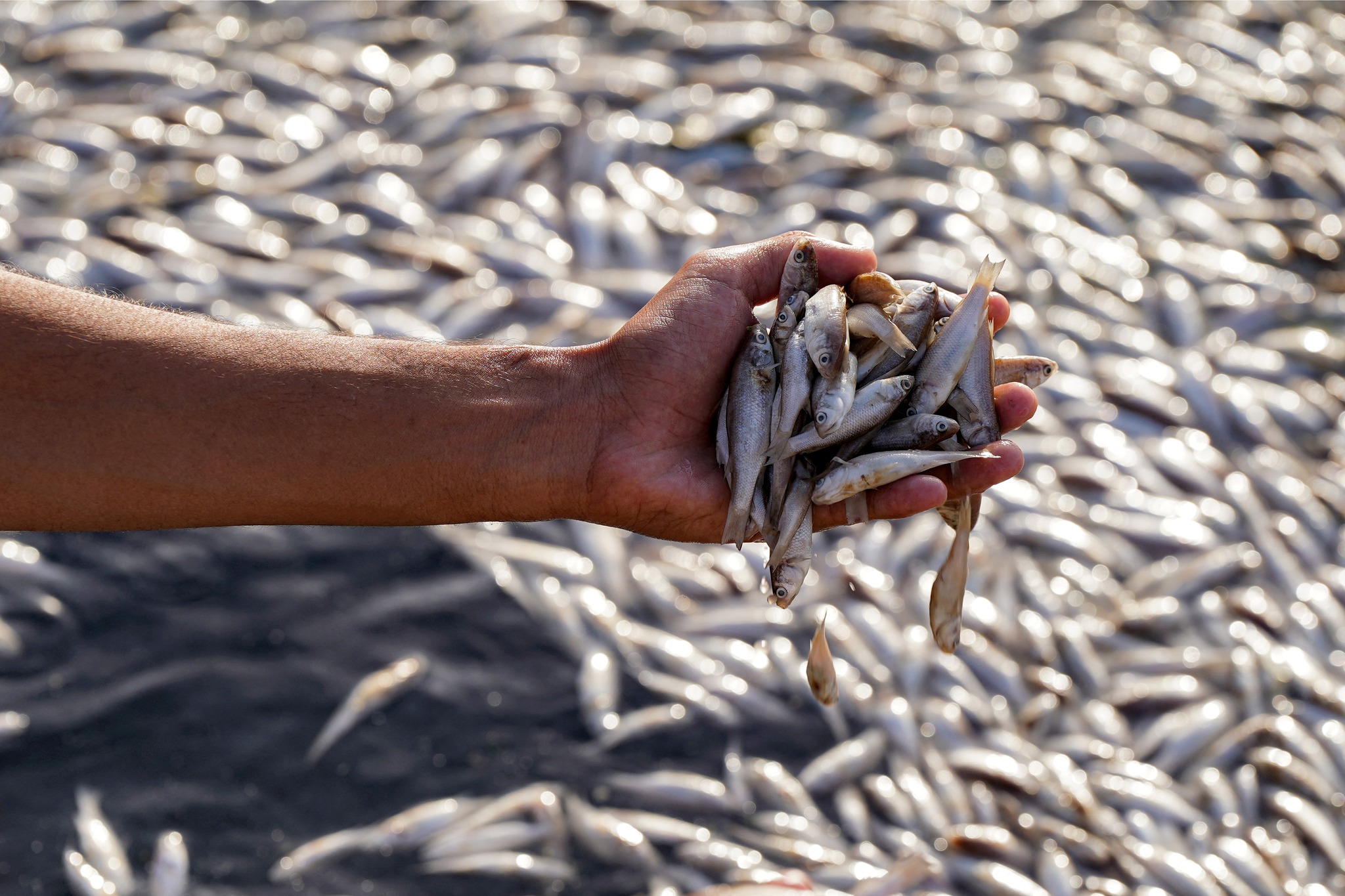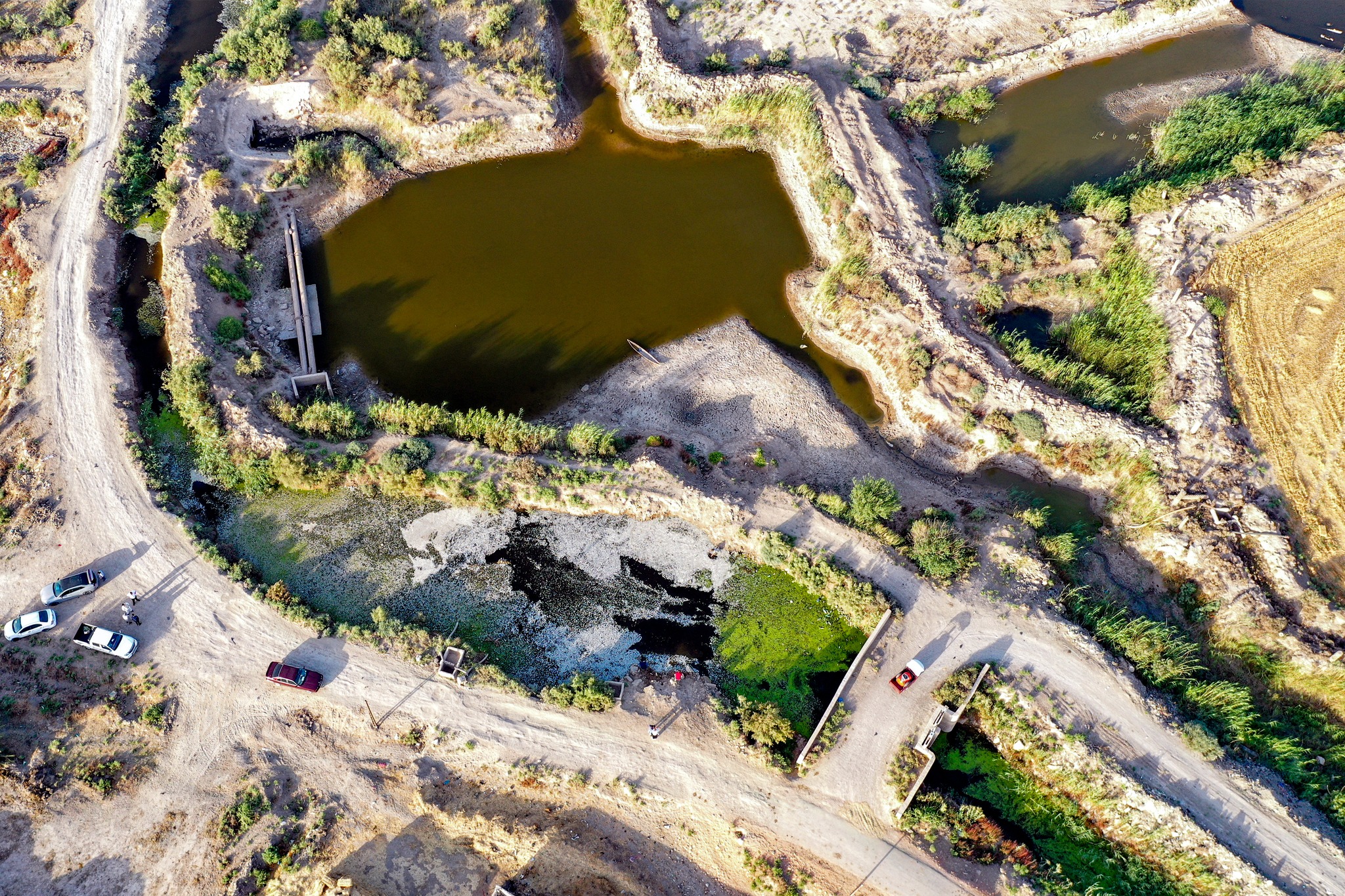Mass Fish Die-Off in Southern Iraq Sparks Environmental Probe
Authorities suspect climate change, poison use behind the ecological disaster.

ERBIL (Kurdistan24) — Iraqi authorities have launched an urgent investigation into a massive die-off of fish in the southern marshlands near Najaf, following alarming reports and citizen complaints about thousands of dead fish surfacing in local waters, Agence France-Presse (AFP) reported Monday.
AFP images from the scene show large numbers of silver fish floating lifelessly in the Ibn Najm marshes, a once-thriving aquatic ecosystem. Buffaloes were seen wading through water teeming with dead fish as they attempted to cool off amid sweltering temperatures.

Jamal Abd Zeid, Najaf’s chief environmental officer, confirmed that a technical inspection team has been dispatched to collect water samples and investigate the causes of the die-off. "We have received several citizens' complaints," he said, noting that the team is examining a range of potential causes, including low water levels, high evaporation rates, and the suspected use of toxic substances by fishermen.
Local environmentalists, including renowned activist Jassim al-Assadi, warn that the fish die-off could be attributed to a combination of factors. “We need lab tests to determine the exact cause,” Assadi told AFP. He cited oxygen depletion due to low water flow, extreme heat, and wind, as well as the possibility of agricultural pesticides or chemical agents being deliberately introduced into the water.
"The use of poison in fishing is not just an ecological crime, it's dangerous for public health and the food chain," Assadi warned. “Using poison today, then again in a month or two... It’s going to accumulate.”

This is not the first time Iraq has witnessed such environmental catastrophes. For over five consecutive years, Iraq has suffered from extreme droughts driven by climate change, compounded by upstream dam constructions in neighboring Iran and Turkey, which have drastically reduced the flow of water into Iraq’s river systems.
Experts say the cumulative impact of climate change, poor environmental regulation, and harmful human practices is accelerating the collapse of Iraq's fragile ecosystems. The destruction of the country’s natural environment adds to the long list of crises Iraqis have endured for decades — from wars to authoritarian rule and economic instability.
The Najaf marshes, once part of the larger Mesopotamian Wetlands, are recognized for their ecological importance and cultural heritage. But without swift action and serious reforms, environmental advocates fear such disasters will only become more frequent — and more deadly.

